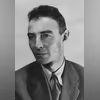J Robert Oppenheimer: The complex legacy of the 'Father of the atomic bomb'
From constructing the atomic bomb to turning to the Bhagavad Gita and being denounced by his own country as a "communist sympathiser," here is everything you need to know about Oppenheimer
)
Photo: narademo.umiacs.umd.edu
Listen to This Article
India is preparing for the premiere of the highly anticipated movie 'Oppenheimer' directed by Christopher Nolan, set to be available in cinemas on July 21st. Here is an in-depth look at the inspiration behind the movie, J Robert Oppenheimer.
J Robert Oppenheimer, born Julius Robert Oppenheimer, was an American physicist and one of the most significant figures in the development of the atomic bomb. He was born on April 22, 1904, in New York City and passed away on February 18, 1967, in Princeton, New Jersey.
Background, education and marriage
Oppenheimer graduated from the Ethical Culture Society School in New York City before attending Harvard University, where he developed a keen interest in theoretical physics.
At the University of Cambridge in the UK, he conducted research under the guidance of renowned physicist JJ Thomson and earned his PhD in physics from the University of Gottingen in Germany in 1927. Oppenheimer was born into a prosperous Jewish family. His father, Julius Oppenheimer, was a German immigrant who had established a textile-importing business and his mother, Ella Friedman, was a painter.
Also Read
In 1929, Oppenheimer married Katherine "Kitty" Puening Harrison, an American biologist and botanist. She was also a member of the Communist Party of America. They had two children together, Peter and Katherine. However, they eventually divorced in 1940.
Leading the Manhattan Project
Oppenheimer is best known for his role in the Manhattan Project, a top-secret research and development initiative during World War II that led to the creation of the first atomic bombs. As the leader of the project, he oversaw the design and construction of the bombs.
On July 16, 1945, the first atomic bomb, codenamed "Trinity Test," was successfully detonated in New Mexico. Subsequently, the devastating bombings of Hiroshima and Nagasaki in August 1945, which claimed between 129,000 and 226,000 lives, led to the end of World War II and the beginning of the nuclear arms race.
Oppenheimer’s moral dilemma
Oppenheimer had opposed then President Truman's decision to use the atomic bomb in Japan, which he considered unnecessary given Japan's impending defeat. After witnessing the destructive power of the atomic bomb, he became an advocate for nuclear arms control and spoke out against the further development and use of nuclear weapons.
Finding solace in the Bhagavad Gita
Grappling with the consequences of creating such a powerful and deadly weapon, Oppenheimer turned to the Bhagavad Gita to find solace.
Quoting the epic, Oppenheimer famously said, "Now, I am become Death, the destroyer of worlds," encapsulating the profound existential dilemma he faced. In this way, the Bhagavad Gita served as an anodyne for his conscience. He drew parallels between Arjuna's moral dilemmas and his own responsibilities as a scientist engaged in a war against fascism. It is even said that he learnt Sanskrit to read the scripture in its original language.
Controversial political views during the Cold War
In a paper published in 1946, Oppenheimer described the bomb as a tool for aggression, characterised by elements of surprise and terror. He emphasised the need for a collective responsibility to recognise the common peril that atomic weapons posed to the world.
As chairman of the General Advisory Committee of the United States Atomic Energy Commission, Oppenheimer tirelessly worked towards curbing nuclear proliferation in the United States. His opposition to the development of the hydrogen bomb further strained his relationship with the military establishment. His political views and associations led to his security clearance being revoked during the McCarthy era, also known as the ‘Red Scare’. He faced accusations of being a “communist sympathiser” and underwent a highly publicised security hearing in 1954. Although he was ultimately cleared of charges, his career was significantly affected.
Oppenheimer’s legacy
Outside of his work on the Manhattan Project, Oppenheimer made significant contributions to theoretical physics. He played an important role in shaping the field of theoretical physics and known to be an incredible teacher and mentor to several physicists.
In 2022, the US government finally nullified its 1954 decision, affirming Oppenheimer's loyalty and acknowledging the bias and unfairness he faced after the war.
More From This Section
Don't miss the most important news and views of the day. Get them on our Telegram channel
First Published: Jul 19 2023 | 11:16 AM IST
